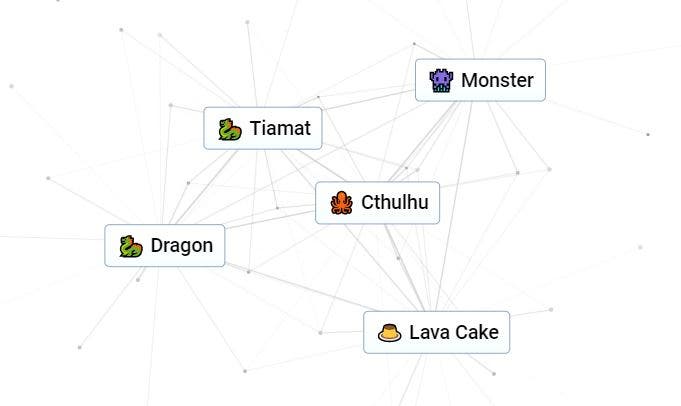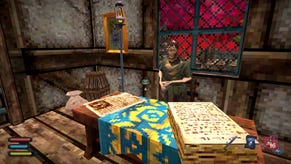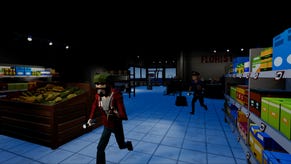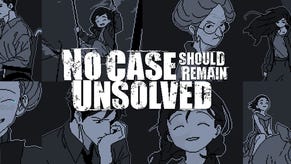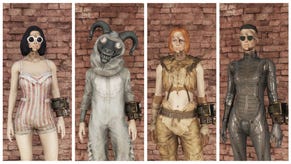Behind Infinite Craft, one of the internet's favourite time-killers, its creator wrangles with AI "alchemy"
"It's completely different to traditional game design…"
Infinite Craft is a browser game with a simple premise. You begin with four elements – water, fire, wind, and earth – and combine two of them to make a new element. Water and fire make steam, steam and fire make an engine, steam and engine make a train. Before you know it, your bloodshot eyes behold a web of nebulas, political crises, philosophical concepts, and volcanoes (so many volcanoes!) sprawling across a conspiracy map that would make Charlie Kelly blush. But how did one man possibly prepare for all these combinations? Well, behind the curtains of Infinite Craft, an AI synthesises connections between your chosen elements and adds them to a global database. It's a game made by one man, informed by billions of minds, yet powered by no one at all.
Amid rampant games industry layoffs, AI art in Square Enix games, and AI voice acting in The Finals, the thought of gamifying AI itself might rightly send a sensible shiver down your spine. But I think Neal Agarwal, a 26-year-old developer based in New York, deserves an open mind. Soft-spoken and musing with interest in my line of work, Agarwal radiates the airy thoughtfulness of someone you'd expect behind a game like Infinite Craft. With his broader body of work in view, it all makes even more sense. From vast visualisations of the deep sea to interactive trolley problems with increasingly absurd dilemmas, his website Neal.fun is an eclectic springboard of curiosity. If any project embodies him best, it's Internet Artifacts: a massive internet history museum whose interactive exhibits include '80s Usenet terminals, emulated browsers, and playable Flash games. Neal.fun is a tactile toybox, one so relentlessly jumbled that it almost eludes theme. I say almost, because beneath the miscellany lies an obsession with scale, new technologies, and nostalgia for a more playful chapter of the internet.
Infinite Craft feels like the final boss of Neal.fun. A playful repurposing of today's tech preoccupation, it draws its endless connections from the bottomless well of the internet. It's also his biggest and costliest project yet. "Last month was the most money I've ever spent in my life," he tells me with a winded smile. By licensing Meta's generative AI Llama 2 to produce the elements and connections, plus separate server hosting costs via TogetherAI, Infinite Craft racks up quite the maintenance bill. "It's breaking even now, so that's nice. It's not making money, but at least it's not losing any."
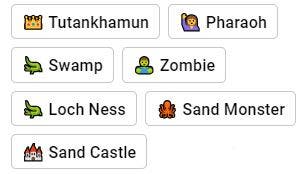
Money seems the simplest of Agarwal's problems, as generative AI has proved quite the beast to wrangle. "It was a weird game of prompting the computer and explaining the rules to it," he says. "Sometimes you think it understands, and then it'll make a combination that makes no sense. Giving examples worked best. But then I'd say like, Batman plus Superman equals Justice League, and it'd try to make everything a pop culture reference. I'm like 'no, that's not what I want!' I went through hundreds of different prompts. It was kind of like talking to a five-year-old." Like people, AI models have their own personalities, costs, and capabilities. Finding the right model for Infinite Craft seemed more like hiring a candidate than choosing a tool. "Some models were cheap and dumb. Others were smart but would have bankrupted me. I tried ChatGPT, but I didn't get the results I wanted, so I went for an open-source model for the flexibility."
I wonder if that flexibility is a double-edged sword. To inform their responses, large language models draw from enormous datasets of text sources; articles, books, websites, the list goes on. Everyone from newspapers to visual artists to best-selling authors is suing AI companies for feeding language models a buffet of their copyrighted works as training data. This carte blanche appropriation also includes social media. As it happens, when you feed an AI a million Tweets indiscriminately, the AI learns to discriminate. Some models, like ChatGPT, follow strict safeguarding directives to sanitise their output. But if ChatGPT is the teacher's pet, Infinite Craft's Llama 2 is the class clown. Combining 'Europe' and 'Cult' creates 'Vatican'. Combining 'Religion' with itself creates 'War'. 'Donald Trump' is represented by a poop emoji; combine him with 'Prison' and Llama 2 serves 'Justice'. Surely its judgement must land Agarwal in hot water?
"All the time," he laughs. "I get emails from fandoms, religions, the list goes on. I'm like, 'I didn't choose these combinations!'" Suffice to say, Agarwal understands all too well that AI mimics our prejudices along with our speech. Enforcing that awareness is easier said than done. Even big tech's best efforts tend to produce similarly problematic overcorrections, like Google Gemini depicting Nazi soldiers and the Founding Fathers as people of colour. "I've been trying to modify the filter so the charged connections don't get through, but censoring the AI is a game of Whac-A-Mole. Eventually it doesn't even feel like programming anymore. It's more like alchemy; trying to mix potions, figure out what has what effect on the model, trying to steer it towards a more objective view of the world. It's completely different to traditional game design where you have full control."
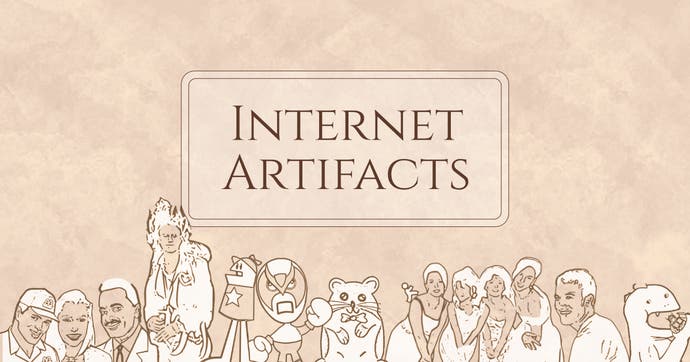
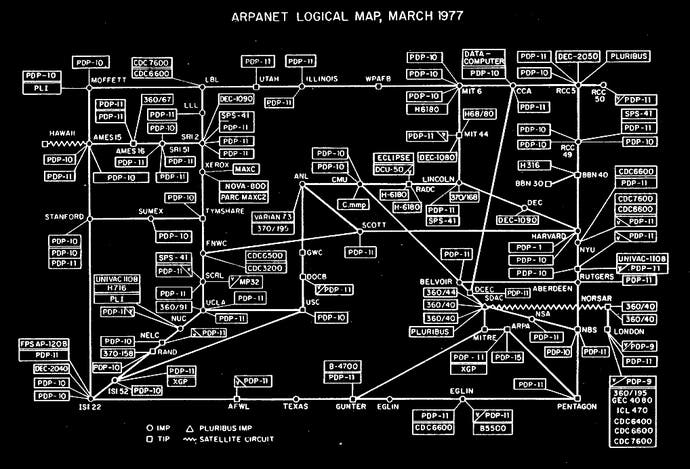
Just as Agarwal struggles to control Llama 2, it often wrestles with the player for the steering wheel. While the datasets informing Llama 2 comprise the input of countless human minds, it's functionally an individual 'mind' whose crude mimicry of our judgement suffocates its own creativity. With its political prejudices and pop culture obsession, it can often feel like all roads lead to Trump or Batman. But even when Infinite Craft pigeonholes you with dogmatic and circular logic, it remains a fascinating – if disquieting – experiment in AI objectivity. Once you deviate from the elements and into the realms of culture and politics, you're destined to unveil brow-raising biases in the technology we increasingly employ as an arbiter of truth.
Despite Llama 2's stubbornness, the internet is still the internet, and Infinite Craft's community has steered the game in wildly inventive directions. "It's amazing. I've seen people make drawings by arranging elements. One Discord channel started crafting Japanese words, and eventually crafted so many they could play the whole game in Japanese. They essentially unlocked a new language inside the game."
A prolific creator, Agarwal rarely dwells on one darling. But Infinite Craft has a future, one the community's creativity plays a critical role in. "Since the game blew up to this level, so many people have sent me feature requests. I'd feel kinda guilty not listening to them, telling them, 'it's done, it's over'. But also, the state it's in now isn't my full vision for the game. There's lots of routes you could take a game like this. I've seen fandoms make family trees of characters, so one feature I'm thinking about is, should I make the board infinite? A lot of people have been making their own minigames, and I'm wondering if I should incorporate them into the actual game or leave it as an open-ended sandbox."
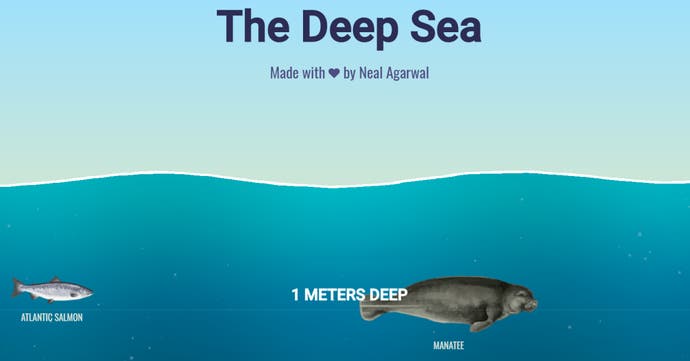
It's easy to understand his reservations about lending structure to Infinite Craft. The absence of guidance seamlessly guides us to explore our own curiosities. That's when I noticed that nearly every game on Neal.fun lacked objectives or resistance. I guessed that ostensibly 'pointless' games intrigue Agarwal, and that it intersects with his love for the Wild West internet he grew up in. "Absolutely. I'm nostalgic for the old Flash era. You'd click around on Newgrounds and find the weirdest things that were made for no reason at all, just because they could. Maybe it's rose-tinted glasses, but I feel like we lost something when everything got consolidated into just a few websites. I guess if the easiest thing is to stay in the walled garden, people will."
I have one last question for Agarwal: if he had all the time and resources in the world, what would he add to Infinite Craft? "So this might be like a separate game," he says giddily, "but my dream game would be like Scribblenauts, but you can draw literally anything you want and it comes to life and it almost feels like a magic sketchbook. You could draw a zebra, and the zebra would start walking around. You could draw the sun, and it'd start spinning."
As he leaps from idea to idea and dream to dream, it's plain to see Infinite Craft has Agarwal written all over it. Yet his sincerity and enthusiasm only heighten the eeriness of the engine behind his creation. Not a bone in my body doubts Agarwal. After all, his game might be the most innocuous use of AI in the games industry to date. It's a brilliant example of how this tech doesn't have to be a cynical cost-cutter and outsourcer, that in the right hands it can open avenues of unique game design. Still, beneath it lie billions of oblivious signatories whom the corporate AI is all too keen to speak for. With Llama 3 rolling out as Meta AI on Instagram, WhatsApp, and Facebook, it's worth asking: if even the best intentions can't muzzle it, what can?
